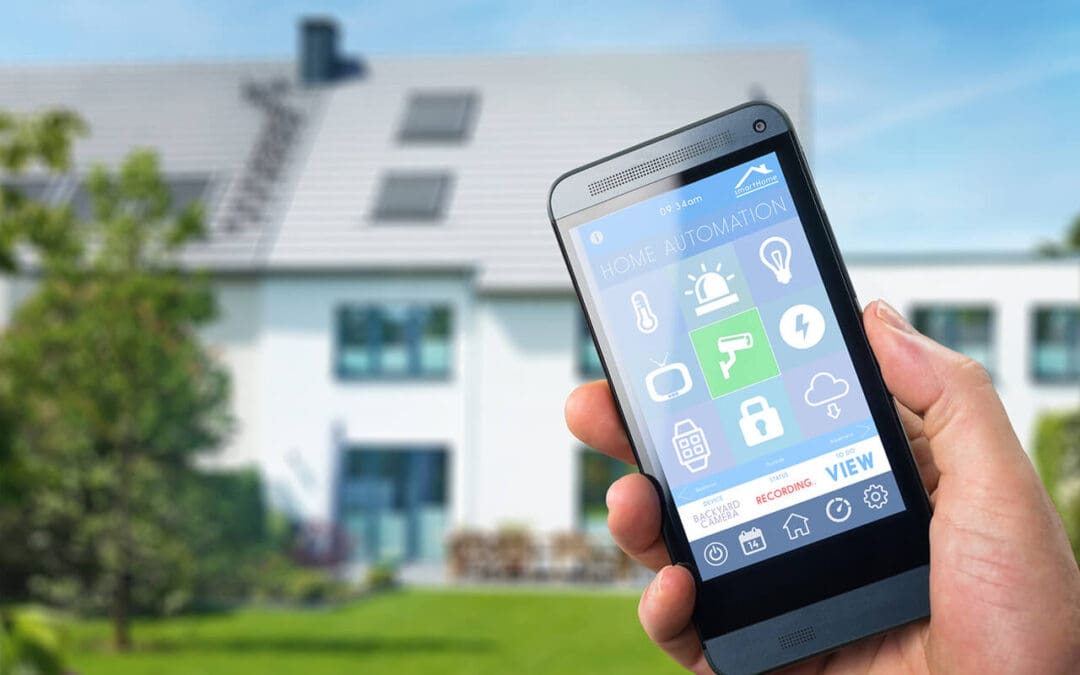It’s easy to think of smart home features as mere gadgets, but the latest advancements in home technology are fundamentally changing how we live, save energy, and manage our properties. Integrating these innovative systems is about making confident, strategic upgrades that increase efficiency, security, and long-term property value for homeowners.
Unlocking Efficiency with Smart Home Technology
The area where home technology delivers the quickest and most significant return on investment is in energy efficiency. Smart devices are now sophisticated enough to learn your living patterns and optimize your energy consumption automatically, often paying for themselves through lower utility bills.
Smart thermostats are the cornerstone of this efficiency. Unlike older programmable models, these advanced devices learn your preferences, sense when you are away, and adjust temperatures accordingly. Some even integrate with your local weather forecast to optimize heating and cooling cycles, guaranteeing you only use energy when necessary. This seamless, hands-off management of your HVAC system is one of the most powerful uses of modern home technology.
Beyond temperature, smart lighting systems offer granular control over energy use. Using occupancy sensors and scheduled dimming, these systems ensure lights are never left on unnecessarily. Some modern appliances can communicate with utility providers to run energy-intensive tasks, such as washing clothes or running the dishwasher, during off-peak hours when electricity rates are lower, significantly reducing your operating costs.
Enhancing Security and Safety with Home Technology
One of the primary motivations for homeowners to adopt new home technology is the enhanced level of security and peace of mind it provides. Modern systems go far beyond simple alarms. Smart cameras offer high-definition streaming and recording, often using artificial intelligence to distinguish between pets, people, and vehicles, reducing false alerts. Smart locks allow you to grant temporary, keyless access to visitors or service providers and monitor entry and exit remotely. This level of granular control over access points makes managing your property, whether you’re home or thousands of miles away, remarkably simple and secure.
Safety extends beyond intrusion. Smart smoke and carbon monoxide detectors alert you to hazards and can often pinpoint the exact location of the danger and notify emergency services automatically. Crucially, water leak sensors can be placed near appliances and in basements. These small, inexpensive devices provide an early warning of plumbing failures, preventing minor drips from becoming catastrophic flood damage.
The Role of Connectivity and Centralized Control
The true power of home technology lies in its connectivity. No longer do you need a dozen different apps for a dozen different devices. Centralized control platforms and whole-home networks bring everything together. Central smart hubs act as the brain of your home, allowing different brands and types of devices to communicate with each other. This integration enables sophisticated automations: when the garage door closes, the system could automatically arm the security, adjust the thermostat, and turn off the interior lights.
Investing in high-speed internet and a strong whole-home Wi-Fi mesh network is the necessary foundation for home technology upgrades. A stable network prevents frustrating dropped connections and guarantees all your security and efficiency systems respond instantly and reliably.
Increasing Property Value with Home Technology
Finally, for homeowners planning to sell, modern home technology is increasingly moving from a luxury feature to an expected standard among buyers. A well-documented, professionally installed suite of smart features, especially energy-saving components like solar panels or smart HVAC, boosts your home’s marketability and appraisal value. Buyers recognize that a house already outfitted with reliable smart controls and strong networking represents lower immediate costs and easier living. By embracing strategic upgrades, you are investing in the long-term desirability and financial stability of your property, securing a modern advantage in the competitive real estate market.
Frequently Asked Questions (FAQs)
Is smart home technology too complicated for non-technical homeowners?
Not anymore. Most home technology systems are designed for easy, plug-and-play setup and simple management through user-friendly smartphone apps.
Do I need to replace all my appliances at once to start?
Absolutely not. You could start small, perhaps with a smart thermostat or a few security cameras, and gradually add compatible devices over time.
Is there a risk of hackers or privacy invasion with smart home devices?
Security is a top priority for manufacturers. While risks exist, you can mitigate them by using strong, unique passwords for your Wi-Fi network and smart devices, enabling two-factor authentication, and regularly updating your device firmware.
Does installing smart home systems void my existing appliance warranties?
Generally, no. Smart thermostats and control devices are usually designed to integrate with standard HVAC systems without affecting warranties. For any major modifications, however, it’s always wise to consult your appliance manufacturer’s documentation.
American Dream Home Inspections provides inspections to homebuyers and sellers in Northern and Central New Jersey. Contact us to request our services.

